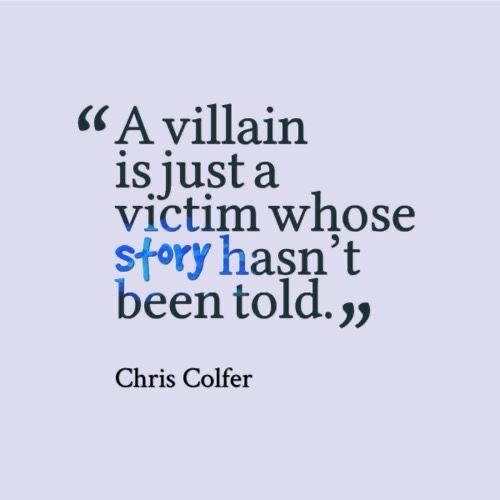“All evil is potential vitality in need of transformation.”
Sheldon B. Kopp, If You Meet Buddha On The Road, Kill Him! (Page 223)
“As children we owned all of ourselves. As adults, in response to the expectations of others, we have had to hide much of ourselves away, out of sight even from our own eyes. The cost of such voluntary losses is great. No one can afford to give up any part of himself. All of you is worth something. Even the evil can be a source of vitality if only you can face it and transform it.”
Sheldon B. Kopp, If You Meet Buddha On The Road, Kill Him! (Page 141)
“If we flee from the evil in ourselves, we do it at our hazard. All evil is potential vitality in need of transformation. To live without the creative potential of our own destructiveness is to be a cardboard angel.”
Sheldon B. Kopp, If You Meet Buddha On The Road, Kill Him! (Page 109)
“Siddhartha ‘no longer merely knows about, he understands the evils of the worldly life’ and so he is free of them.”
Sheldon B. Kopp, If You Meet Buddha On The Road, Kill Him! (Page 60)
“We don’t control the vileness of the world or of other people. We do control whether we contribute to it though, whether we choose to contrast it with our own splendor and goodness. We control what we look for also–as Marcus [Aurelius] did, filling Meditations not just with somber or depressing notes but also observations about the beauty and majesty of nature and life. Will you be splendid or vile? That’s the call you get to make, always and forever.”
Ryan Holiday
“That kind of violence… it tears open a hole, it’s like a black hole. It sucks language and meaning and all sense and whenever we show up and try to make sense of it, it reins hallow because there’s no making sense of this kind of mass violence—mass suffering. And when people have just survived it, it’s like you’re sitting on the edge of that black hole and you’re about to be sucked in and the only way that you don’t fall in is if someone is holding your hand. That’s all it takes.”
Valarie Kaur
“The sinner sins against himself: the wrongdoer wrongs himself, by making himself morally bad.”
Marcus Aurelius, Meditations (Page 85)
“It is not the blaming of evil but the glorifying of goodness that creates harmony in our life.”
Lucy Malory, via A Calendar of Wisdom (Page 359)
“To the ancient Greeks, far more harm is caused in this world by stupidity and incompetence than outright evil. Those who are overtly evil can be combated, because they are easy to recognize and fight against. The incompetent and stupid are far more dangerous because we are never quite sure where they are leading us, until it is too late. The greatest military disasters in history have more often than not originated from leaders who lack strategic wisdom.”
Robert Greene, The Daily Laws (Page 306)
“All that brings unification to people is goodness and beauty; all that brings separation among them is evil. All people know this: it is firmly inscribed on our hearts.”
Leo Tolstoy, A Calendar of Wisdom (Page 206)
“There can be only one way to fight the general evil of life: it is in the moral, religious, and spiritual perfection of your own life.”
Leo Tolstoy, A Calendar of Wisdom (Page 180)
“An evildoer is happy while the evil is not yet ripe, but when it is ripe and ready, he will understand what evil is, and his evil will return to him like dust thrown against the wind. Neither in the sky nor in the earth nor in the depth of mountains, nor anywhere in this world is there a place where one can escape the results of sin.”
Dhammapada, via A Calendar of Wisdom (Page 170)
“The greatest virtue is to do no evil, even to your enemies. If you respect yourself, you will not commit evil, even in the slightest way.”
Indian Wisdom, via A Calendar of Wisdom (Page 170)
“Individual goodness and individual evil both have the power to spread goodness and evil throughout the world.”
Leo Tolstoy, A Calendar of Wisdom (Page 167)
“We would think a man insane who, instead of covering his house with a roof and putting windows in his window frames, goes out in stormy weather, and scolds the wind, the rain, and the clouds. But we all do the same when we scold and blame the evil in other people instead of fighting the evil which exists in us. It is possible to get rid of the evil inside of us, as it is possible to make a roof and windows for our house. This is possible. But it is not possible for us to destroy evil in this world, just as we cannot order the weather to change and the clouds to disappear. If, instead of teaching others, we would educate and improve ourselves, then there would be less evil in this world, and all people would live better lives.”
Leo Tolstoy, A Calendar of Wisdom (Page 33)
“It’s important to strive to do good, and even more important to strive to abstain from evil.”
Leo Tolstoy, A Calendar of Wisdom (Page 18)
“Kind people help each other even without noticing that they are doing so, and evil people act against each other on purpose.”
Chinese Proverb, via A Calendar of Wisdom (Page 16)
“Higher consciousness is the answer—the only lasting answer—to the dark side of human nature.”
Deepak Chopra, The Shadow Effect (Page 13)
